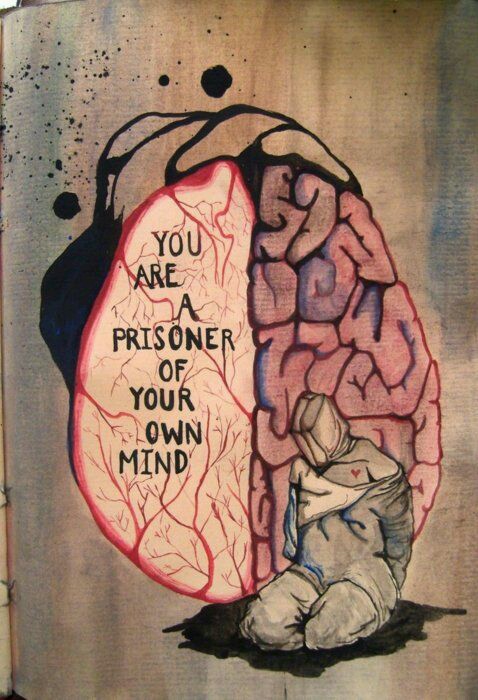“inCity Magazine celebrates the kaleidoscope of perspectives in each article. The views expressed herein are the unique brushstrokes of our guest writers, painting the canvas of their thoughts. These ideas, like stars in a constellation, shine independently and do not necessarily align with the orbit of inCity Magazine or its advertisers.”
Disruption of Adaptive Information Processing
Trauma is a complex psychological phenomenon that can have profound and lasting effects on individuals. It disrupts the normal adaptive information processing mechanisms of the brain, leading to the dysfunctional storage of unprocessed information within memory networks. I will explore the relationship between trauma, adaptive information processing, and the subsequent formation of dysfunctional memory networks.
Trauma and Adaptive Information Processing: Traumatic experiences, such as physical or sexual abuse, combat exposure, natural disasters, or severe accidents, overwhelm an individual’s capacity to cope and integrate the associated emotions, sensations, and cognition. On a personal note, I have experienced and suffered through all the things mentioned. This is why I dug like a wolverine to gain understanding and clarity to my own traumas so I could heal, help and serve. The human brain has evolved to process and integrate such experiences through adaptive information processing mechanisms.
These mechanisms involve the encoding, consolidation, and retrieval of memories, allowing individuals to adapt and respond to future challenges effectively. Trauma disrupts the normal functioning of adaptive information processing. During a traumatic event, the brain is flooded with overwhelming sensory and emotional input, which can overload the individual’s cognitive and emotional resources. As a result, the processing and integration of the traumatic experience into existing memory networks are hindered. The disruption of adaptive information processing leads to unprocessed information being dysfunctional held in memory networks.
Traumatic memories are often fragmented, disorganized, and vividly recalled with intense emotional and sensory details. These memories can be intrusive, causing distressing flashbacks, nightmares, and emotional reactivity. The unprocessed information remains vividly stored in memory networks, making it difficult for individuals to make sense of their traumatic experiences and integrate them into their overall life narratives. Dysfunctional memory networks resulting from trauma can contribute to a range of symptoms and difficulties experienced by individuals. These may include post-traumatic stress disorder (PTSD), anxiety disorders, depression, dissociation, and difficulties with emotion regulation.
The fragmented and disorganized nature of traumatic memories can hinder adaptive coping strategies and interfere with the individual’s ability to form new, healthy associations and responses to similar situations. Treatment Approaches: Understanding the disruption of adaptive information processing and the formation of dysfunctional memory networks has important implications for trauma treatment. Therapeutic interventions, such as trauma-focused cognitive-behavioral therapy (CBT), eye movement desensitization and reprocessing (EMDR), and narrative exposure therapy (NET), aim to facilitate the processing and integration of traumatic memories. Living organisms have evolved within the natural electromagnetic fields (EMFs) of the earth which comprise the global atmospheric electrical circuit, Schumann resonances (SRs) and the geomagnetic field. Research suggests that the circadian rhythm, which controls several physiological functions in the human body, can be influenced by light but also by the earth’s EMFs. Cyclic solar disturbances, including sunspots and seasonal weakening of the geomagnetic field, can affect human health, possibly by disrupting the circadian rhythm and downstream physiological functions. It’s been discovered that the heart’s electromagnetic field can influence your DNA, ultimately affecting your health and impacting your cellular vibration, which can alter how your body operates.
These approaches help individuals reprocess unprocessed information, promote adaptive information processing, and facilitate the formation of healthier memory networks. Trauma causes a disruption of normal adaptive information processing, resulting in unprocessed information being dysfunctionally held in memory networks. The fragmented and vivid nature of traumatic memories contributes to the development of trauma-related symptoms and difficulties. Acknowledging the impact of trauma on memory networks is crucial for developing effective treatment strategies that facilitate the processing and integration of traumatic experiences. By promoting adaptive information processing, individuals can gradually reconstruct their memory networks, fostering resilience, and facilitating the path towards recovery and healing.
The science of life says there is more to know like magnetite nanoparticles which have been detected in the human brain, especially in the cerebellum and brainstem. These nanoparticles have been detected to help with signals and growth in the human body and it is affected by the rhythm you are receiving and allowing to be received. We have a option and a choice to live. Through study and practice, we can be better.
Written by: Dr. Paul W Dyer GM



